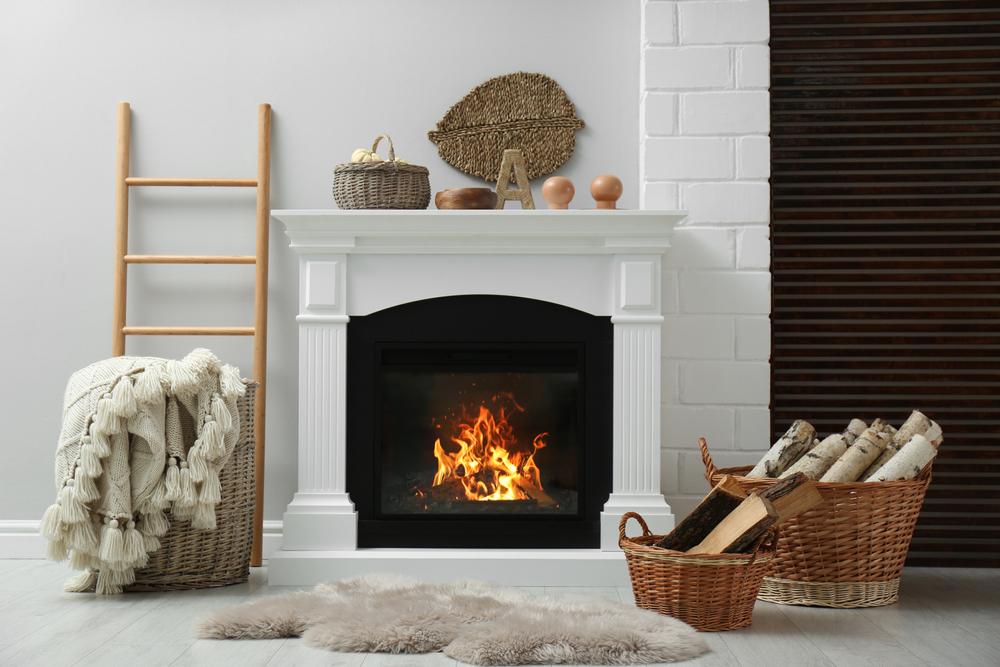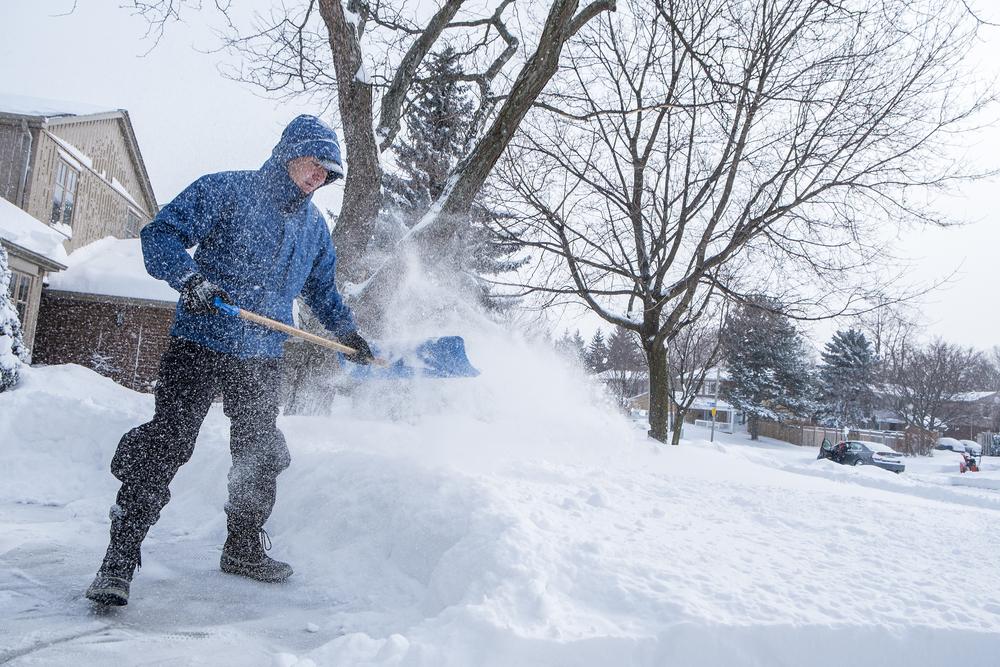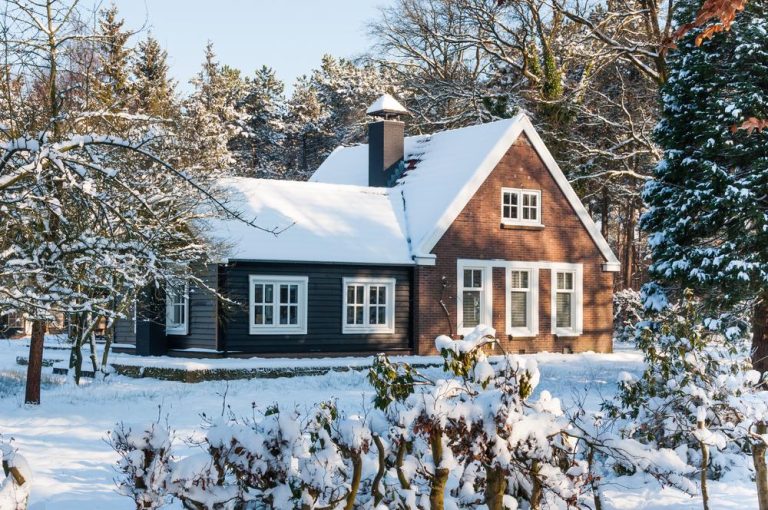Prepping your home for winter may not be at the top of your fall to-do list, but it’s essential to winterize your house for the cold and icy weather. Between power outages, damage caused by piling snow and the high cost of heating your home, winter can be a challenging season as a homeowner. Besides sealing window and door leaks and prepping your plumbing, other cost-saving strategies for the winter season can include installing new kitchen appliances because they are more energy efficient. Start these simple steps now to prepare your home for the first snow:
Insulate Pipes
Pipes that run along a wall or in an unheated area like a basement can potentially freeze and burst when temperatures get below 32°F. Pipe insulation, purchased at a hardware store, protects your pipes from freezing or bursting, leading to flooding and extensive water damage. You can also use a heating system like the MRCOOL DIY Mini Split to heat the area near exposed pipes to help keep them from freezing.
Inspect Tree Branches
Search your property for branches growing over your home, garage, driveway or nearby power lines. Branches falling on any of these structures can cause issues that may cost thousands of dollars or significantly disrupt your power or ability to live in your home. Trim any branches if you have the tools, or call an arborist for assistance.
Check the Roof for Damage
While you’re inspecting your yard, inspect your roof for damage. Loose or missing shingles can cause a leak during a storm or from melting snow. More extensive damage could cause a roof collapse with the added weight of piling snow. Wind-packed snow weighs approximately 24 pounds per cubic foot.
Roofing consists of an insulating layer covered by plywood and waterproofing material, and then tiles, shingles or asphalt. Damage to the outer and waterproof layers of your roof can allow the plywood, insulation and rafters to become waterlogged, significantly reducing their structural integrity and weight capacity. This can easily lead to a roof collapse or moisture damage in your attic.
Clean Out Gutters
Gutters clogged with leaves can freeze into a heavy block of ice that can pull down the gutters and parts of the roof, causing damage to the underlying structures. To avoid damage, clean gutters thoroughly, emptying leaves and debris before the weather gets cold. This allows the gutters to drain correctly and won’t allow water to freeze inside.
Prevent Door Locks from Freezing
External door locks tend to freeze in the winter. A powdered graphite lubricant sprayed into each door lock can help keep the pins inside from sticking and ensure you are never locked out in the cold.
Drain Sprinklers
If you have a sprinkler system, you’ll need to drain any residual water left in your sprinkler hoses and pipes because they can freeze and burst when the temperature drops. The easiest option is to hire a contractor to blow out the lines with compressed air. It’s also possible to do it yourself by following the directions from your sprinkler manufacturer.
Mulch Flower Beds
If you have flower beds or want to keep your landscaping looking great, adding some hardwood mulch to your planters regulates the changes in soil temperatures. Mulching helps perennial plants survive sub-zero winter temperatures.

Get the Fireplace Cleaned
Before lighting up the fire for the season, it’s vital you get your fireplace checked. Chimneys and vents must be regularly cleaned and repaired to eliminate creosote build-up from causing fires and to keep carbon monoxide from seeping into your home. The CDC also suggests checking your smoke detector and installing a battery-powered carbon monoxide detector nearby to monitor your fireplace and ventilation system.
Have the Furnace Checked
Like a fireplace, you need your furnace checked before each winter season. Before winter starts, hire an HVAC specialist to ensure your furnace or boiler works efficiently and safely. A poorly working furnace can release unhealthy gasses, increase heating costs or potentially cause a fire.
A 3 zone mini split is an excellent alternative to a traditional furnace because it’s easily installed and simple to maintain without hiring a professional. It is also more energy-efficient than conventional central air. A zoned mini split allows you to control the temperature in the rooms you are using without wasting energy on unoccupied areas of your home. This can save up to 50% more power than furnaces or central air conditioners.
Reverse Ceiling Fans
If you have ceiling fans and they have reverse switches, flipping them to make the blades go in a clockwise direction creates an updraft and pushes down the hot air from your heating system as hot air rises. This helps heat your home more efficiently and lowers your energy costs.
Caulk Around Windows and Doors
Many homes have draft problems, causing high utility bills and wasted energy. Using white or clear caulking, you can fill in gaps around windows and doors to help keep your home warmer for less cost. Alternatively, replace the weatherstripping on your doors and windows, and add a metal or rubber door sweep to seal open areas between the door and the floor. You should also consider adding caulk around baseboards. Cold outdoor air can enter your home through cracks between the baseboards and the floor or wall.
Restock Winter Essentials
Winter essentials can mean anything from boots, new gloves and coats to extra food, pet supplies, medications and items you need if you need to remain at home for several days. According to Ready.gov, you should also have extra batteries, flashlights and wireless radios with access to the NOAA channel.
You should also think about restocking salt or ice melt, check the condition of your shovel or snowblower and check your gas or propane stock, depending on what you use for appliances. If you live in an area where you anticipate prolonged power outages in the winter, invest in a whole home generator that runs on diesel, natural gas or solar energy.

Prep Your Home Today
Prepping your home for winter can mean the difference between an easy and stressful season. Checking a few items off your list ensures that you are prepared, won’t waste money on high utility bills or unexpected maintenance and will protect your family and property.

